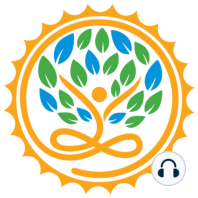35 min listen

Morning Larks and Night Owls: the Biology of Chronotypes
Morning Larks and Night Owls: the Biology of Chronotypes
ratings:
Length:
79 minutes
Released:
Jan 27, 2019
Format:
Podcast episode
Description
Back on the show today is Greg Potter, PhD, Content Director at humanOS.me. Last time Greg was here we discussed entraining circadian rhythm to attain perfect sleep. Today we’re examining circadian biology from a different angle, focusing specifically on chronotypes. Are we biologically wired to be morning larks or night owls? Or do these tendencies stem from social conditioning and modern influences? On this podcast, Dr. Tommy Wood talks with Greg about the biological underpinnings that may have resulted in distinct chronotypes. They discuss the environmental factors that contribute to early or late tendencies and the impact of having a “late” chronotype on health outcomes. Greg also shares his best practical strategies to optimize the circadian system for the purposes of health, sleep, and productivity. Here’s the outline of this interview with Greg Potter: [00:00:00] Try a humanOS Pro Membership for $1 for the first month (use code: NBT). [00:00:10] Greg’s previous podcast: How to Entrain Your Circadian Rhythm for Perfect Sleep and Metabolic Health. [00:02:04] Satchin Panda podcast: How to Use Time-Restricted Eating to Reverse Disease and Optimize Health. [00:02:12] Bill Lagakos podcast: Why You Should Eat Breakfast (and Other Secrets of Circadian Biology). [00:02:44] Chronotypes. [00:03:33] Michael O'Shea, author of Aspects of Mental Economy (1900). [00:04:03] Colin Pittendrigh and Serge Daan. [00:04:40] Horne and Östberg study: Horne, Jim A., and Olov Östberg. "A self-assessment questionnaire to determine morningness-eveningness in human circadian rhythms." International journal of chronobiology(1976). [00:04:45] Morningness-Eveningness Questionnaire (MEQ). [00:05:45] Composite Scale of Morningness; Munich ChronoType Questionnaire (MCTQ). [00:07:19] Objective measures of biological timing: actimetry; Actiwatch; melatonin rhythm, core body temperature, cortisol. [00:09:20] The circadian system explained. [00:12:19] Time cues (zeitgebers). [00:11:39] Entrainment. [00:15:12] Phase angle of entrainment; Jeanne Duffy, PhD. [00:17:36] Intrinsically photosensitive retinal ganglion cells; David Berson, PhD; Samer Hattar. [00:18:49] Suprachiasmatic nucleus (SCN); Studies: Moore, Robert Y., and Victor B. Eichler. "Loss of a circadian adrenal corticosterone rhythm following suprachiasmatic lesions in the rat." Brain research(1972); and Abe, K., et al. "Effects of destruction of the suprachiasmatic nuclei on the circadian rhythms in plasma corticosterone, body temperature, feeding and plasma thyrotropin." Neuroendocrinology 29.2 (1979): 119-131. [00:19:36] Phase Response Curve. [00:22:03] Sleep homeostasis: the pressure to sleep that accumulates with more time awake. [00:24:26] David Samson, PhD; Sentinel hypothesis, study: Samson, David R., et al. "Chronotype variation drives night-time sentinel-like behaviour in hunter–gatherers." Proc. R. Soc. B 284.1858 (2017): 20170967. [00:28:35] Kenneth Wright, Jr.; Study: Wright Jr, Kenneth P., et al. "Entrainment of the human circadian clock to the natural light-dark cycle." Current Biology 23.16 (2013): 1554-1558; Follow up study: Stothard, Ellen R., et al. "Circadian entrainment to the natural light-dark cycle across seasons and the weekend." Current Biology 27.4 (2017): 508-513. [00:32:49] Weaker time cues: 88% of time indoors, light pollution. [00:35:56] Twin studies on diurnal type: Vink, Jacqueline M., et al. "Genetic analysis of morningness and eveningness." Chronobiology international 18.5 (2001): 809-822. [00:36:24] Familial advanced sleep phase syndrome; Study: Toh, Kong L., et al. "An hPer2 phosphorylation site mutation in familial advanced sleep phase syndrome." Science 291.5506 (2001): 1040-1043. [00:37:48] Delayed sleep phase disorder; study: Patke, Alina, et al. "Mutation of the human circadian clock gene CRY1 in familial delayed sleep phase disorder." Cell 169.2 (2017): 203-215. [00:38:17] Gene variants involved in the sleep timing; Studies: Hu, Youna, et al. "GW
Released:
Jan 27, 2019
Format:
Podcast episode
Titles in the series (100)
Nom Nom Paleo With Michelle Tam by Nourish Balance Thrive